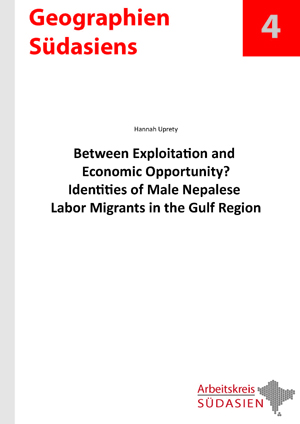
##submission.howToCite##
##submission.license##
##submission.license.cc.by-sa4.footer####catalog.published##
##submission.downloads##
Between Exploitation and Economic Opportunity?
Identities of Male Nepalese Labor Migrants in the Gulf Region
In light of the upcoming FIFA world championship in Qatar, increasing international attention has turned to the large role of foreign workers in the rapid growth of many Gulf cities, as well as the often problematic working and living conditions of these laborers. Considerably less attention, however, has been given to the ‘other ends’ of those migration processes, namely the contexts from which these people originate and return to. One of these contexts is in Nepal, where hundreds of thousands of migrants leave the country each year in search of so-called low-skilled employment. In light of Nepal’s considerably small population and weak economy, these practices have an enormous impact on the country – both financially and in terms of the social and cultural transformations that go along with them. The thesis investigates how these mostly male migrants and their families navigate through transnational lifestyles and how their identities are transformed alongside them. By drawing on qualitative empirical research conducted in 2012, particular focus is put on the re-definition of relationships and intimacy in transnational family practices and the often conflictual and fragmented negotiation of migrant identities. Thereby, the publication provides not only insights into a particular Nepalese practice, but also contributes to the increasingly influential field of critical migration research.







